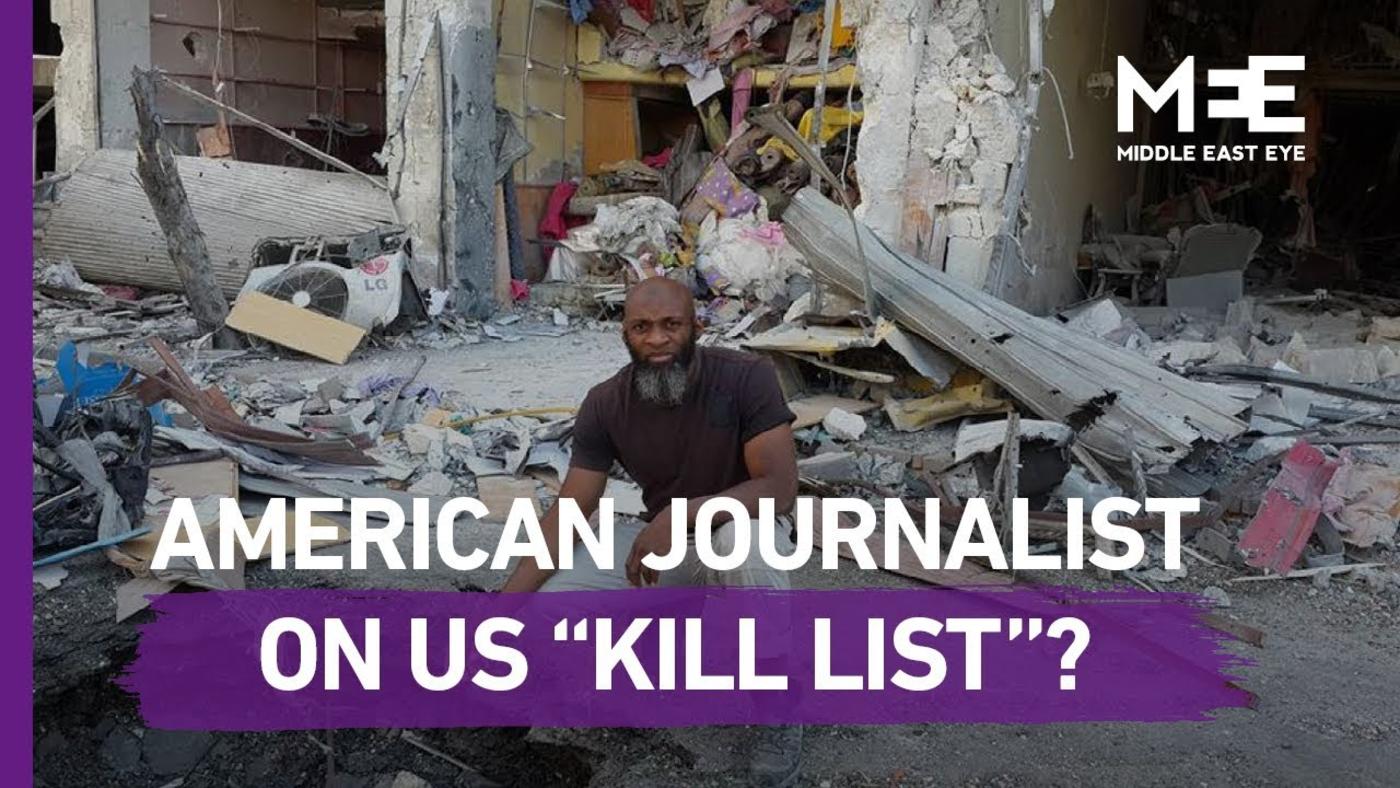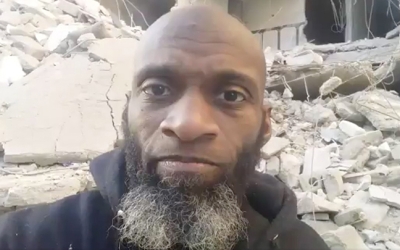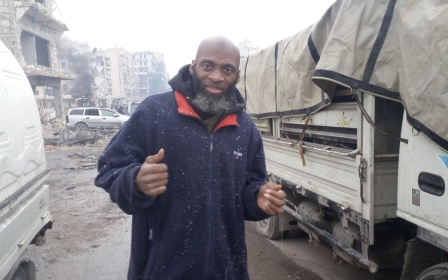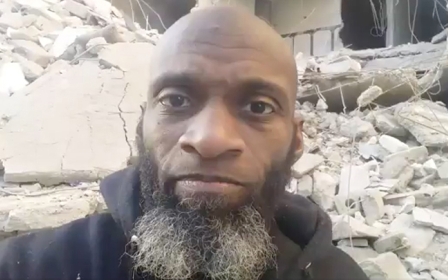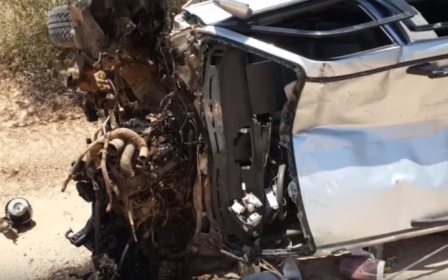US court dismisses journalist Bilal Abdul Kareem's lawsuit over 'drone kill list'
An American journalist who says he was targeted and injured by US drone strikes continues to fear for his life after the Trump administration used its "state secret" privilege to withhold information that could confirm whether he was indeed placed on a drone kill list.
US-born journalist Bilal Abdul Kareem launched a lawsuit last year after he said he was targeted at least five times by US drone strikes in northwest Syria.
Kareem believes he was targeted by US air strikes due to his regular contact with members of militant groups operating inside Syria, including al-Qaeda-linked groups, as part of his reporting.
He was allowed to proceed with the case in June 2018 after US District Judge Rosemary Collyer dismissed the US government's attempt to have his case thrown out, saying he was exercising his constitutional right to due process in court.
His case, however, was dismissed by Collyer on Tuesday after the Trump administration used the "state-secret" privilege, a seldom-used power, in order not to confirm his placement on a US drone kill list.
Responding to the ruling, Kareem described the court's decision to dismiss his case as a "big blow", as he continues to live in fear of being targeted by US drone strikes inside Syria.
"I have no protection if they want to try [to kill me] again next week, next month or six months from now. Do you really trust the Trump administration to handle this responsibly?" Kareem told Middle East Eye from northwest Syria.
"My feeling right now is that if I myself as an American citizen can't get the government to admit what we already know - that I am on a kill list - what about non-Americans?"
Jennifer Gibson, Kareem's co-counsel, described the ruling as tacitly approving the US government's ability to "wield excessive power" and "hide behind [the] spectre of 'national security' to deprive people of their basic rights".
“Today, a court ruled that the US government could kill an American citizen without due process," Gibson, who is a staff attorney at Reprieve, said in a statement.
"In so doing, it allowed the Trump administration to run roughshod over the constitution and tacitly approved the executive’s exercise of unfettered power over its citizens in the name of ‘national security'."
In a 14-page memorandum opinion, Collyer outlined that the court had no choice but to "dismiss" the action due to the US government's "invocation of the state secret privilege".
"What constitutional right is more essential than the right to due process before the government may take a life? While the answer may be none, federal courts possess limited authority to resolve questions presented in a lawsuit, even when they are alleged to involve constitutional rights," Collyer said her judgement.
"This is such a case. Despite the serious nature of plaintiff’s allegations, this court must dismiss the action pursuant to the government’s invocation of the state secrets privilege."
Prosecutors added that disclosing whether Kareem was on the "kill list" would permit him to evade capture or further US action against him and compromise intelligence sources on the ground.
Commenting on the wider implications of the case, Kareem believes the US government has created "a gross injustice to the American people" by refusing to confirm if he is named on a kill list.
"It's easy when a terror attack happens to trumpet it and say that we continue to fight terror. But nobody wants to talk about the steps we have taken to create that environment," he said.
"Nobody wants to take the conversation that far and I think that a gross injustice is being done to the American people. They don't see that the government blocks the avenues to justice and once the avenues of justice are blocked, then it is only natural for people to turn to what? They turn to violence.
"I continue to carry the political fight but I cannot pretend that this isn't a blow."
Middle East Eye propose une couverture et une analyse indépendantes et incomparables du Moyen-Orient, de l’Afrique du Nord et d’autres régions du monde. Pour en savoir plus sur la reprise de ce contenu et les frais qui s’appliquent, veuillez remplir ce formulaire [en anglais]. Pour en savoir plus sur MEE, cliquez ici [en anglais].


